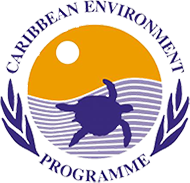
Coordinator
It has been a year of challenges, opportunities and growth for all of us here at the Cartagena Convention Secretariat. Despite the challenges of COVID-19, and the economic downturn in many of the countries who are Contracting Parties to the Cartagena Convention and its Protocols, we are proud of our achievements, of the lessons we have learned, and as we enter the new year, we do so with a renewed sense of optimism, hope and conviction.
What are we proud of? In the spirit of one UN, we partnered with several UN agencies in our host country of Jamaica to complete a project for building community resilience in the water sector by improving potable water supply as well as solid and liquid waste management practices in vulnerable communities and schools. With financial support from the UN Human Security Trust Fund, the tools that were developed can now be upscaled and replicated throughout the region.
The development of our first regional environmental information management platform, which builds on the publication of our first State of Marine Pollution and State of Marine Habitat Reports, will enable greater awareness by the general public of the importance of the Caribbean Sea while allowing for more science-based national and regional policy and decision-making.
Our ongoing efforts to take a more integrated approach to the management of the region’s coastal and marine resources - including the control, reduction and prevention of marine pollution from land-based sources and activities through ecosystem-based management projects and approaches- has facilitated enhanced synergies and partnerships with many organizations at national, sub-regional and regional levels.
However, these partnerships are not only limited to the Wider Caribbean Region as we reached across the Atlantic to partner with our sister Regional Seas Programmes in the North-East Atlantic and Western Africa, in the spirit of transboundary cooperation, to address issues of common concern such as nutrients pollution and the sargassum influx. We also continued to promote South-South cooperation especially among Small Island Developing States.
Our work would not have been possible without the contributions of our donors - the Global Environment Facility (GEF), the European Union (EU), the Government of Germany, the Swedish International Development Cooperation Agency (SIDA) and the Government of Norway. The projects and activities they have funded within the framework of the Convention and its Protocols have enabled us to provide support to Governments for institutional, policy and legal reforms, for the development of sustainable financing mechanisms, and to develop pollution reduction and marine biodiversity strategies and action plans. Perhaps, most importantly, our work has enabled the implementation of innovative and integrated solutions at the local level. This was supported by several training and capacity-building activities to ensure long-term sustainability.
As we plan for the upcoming year, we will be working even more closely with countries through our various programmes, projects and activities to demonstrate the value and relevance of our work to sustainable development. The Cartagena Convention belongs to the countries of the Wider Caribbean Region and as a Secretariat, our goal is to facilitate regional cooperation and support all countries in achieving the goals, objectives and targets they agreed to under this regional legal framework.
Our upcoming Conference of Parties scheduled for March/April 2023 is expected to adopt our new Medium-Term Strategy including a Resource Mobilization Strategy. It is critical that while we have a mandate that is focused on the protection and development of the Caribbean Sea, we will continue to work with regional governments to respond to the interlinked triple planetary crisis of climate change, pollution and biodiversity loss, while contributing to the achievement of Agenda 2030 and the Sustainable Development Goals.
The adoption of the new post-2020 biodiversity targets, ongoing discussions on the new plastics treaty and the increased focus on oceans and ocean-based economies, means that in the coming year, the Cartagena Convention Secretariat is well placed to support countries in meeting these global commitments, preparing for global discussions while at the same time responding to priority national and regional needs. The discussions and decisions of recent global conferences on biodiversity, climate change, pollution and plastics means that the work of the Secretariat is as relevant now as when the Cartagena was first established in 1983.
Our achievements would not have been possible without the dedication and unwavering support of a small Secretariat staff and our Regional Activity Centres – Oil Spills RAC in Curacao, SPAW RAC in Guadeloupe and the LBS RACs in Cuba and Trinidad and Tobago.
Let me end with a sincerest thank you to all of our focal points, partners and anyone who has supported our work as a Secretariat.
It has been an honour for us to continue to serve the Contracting Parties to the Convention and I take the opportunity to wish everyone a peaceful and safe holiday season and productive 2023.
Thank you, Gracias, Merci Beaucoup.






